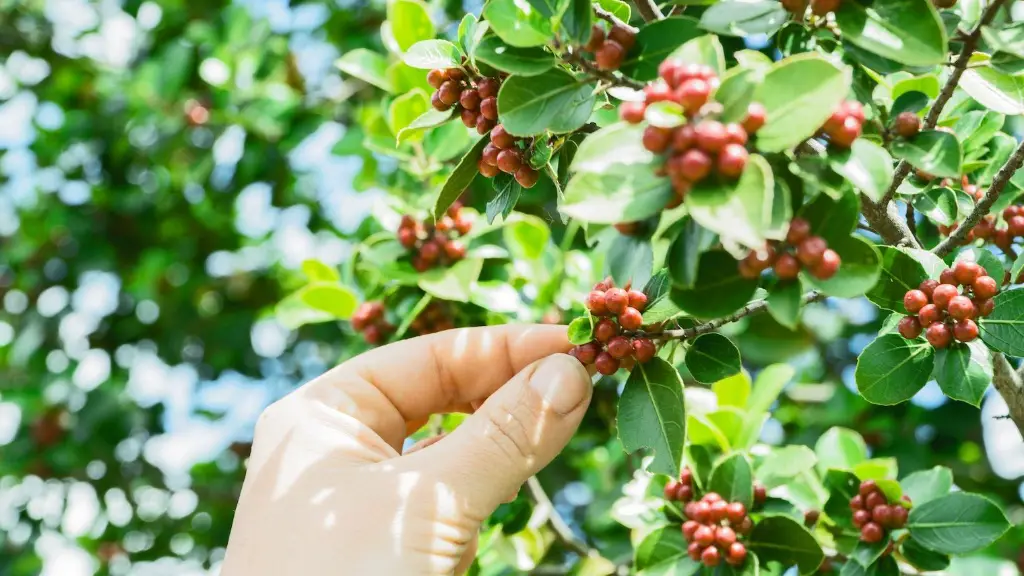The Basics
Coffee is one of the most popular beverages around the world and its affects on the human body are highly debated. However, it is well accepted that too much caffeine can lead to health issues, and so many people choose to cut down on their coffee consumption. But how long does it take to stop drinking coffee?
The process of quitting coffee is different for everyone, and depends on individual body chemistry. Generally speaking, it takes around two weeks for the effects of caffeine to fully be processed out of the body. Symptoms of withdrawal can include headaches, drowsiness, irritability, moodiness, and difficulty concentrating. For those who drink a lot of coffee, it is important to take these symptoms seriously and understand that they may last for a while.
Experts recommend that a person wishing to reduce their caffeine intake start by reducing the amount of coffee they drink each day. They suggest cutting down by 25 percent each week until they have reached zero. This approach is likely to make the transition smoother and more manageable, but it is not the only way to do it.
In addition to the physiological effects, the psychological affects of quitting coffee can also be significant. Those attempting to stop drinking coffee may experience mood swings or difficulty focusing, and so it is important to remember that these side effects are due to biological changes rather than any kind of intrinsic failing.
It is also important to note that someone does not need to quit coffee entirely to benefit from reducing their intake. Cutting down on coffee can make a noticeable difference in terms of energy levels and overall health. Reducing one’s coffee consumption even by a small amount can still be hugely beneficial.
The Health Benefits
The main benefit of quitting coffee is the health effects. Caffeine is absorbed very quickly in our system, and when consumed in large quantities can have adverse effects such as increased heart rate, blood pressure, insomnia, and headaches. In addition, too much coffee can lead to a spike in blood sugar levels which can have long-term health implications.
The good news is that quitting coffee can reduce these risks significantly. As caffeine leaves the body, its effects lessen, which can lead to an improvement in cognitive functioning and a better overall sense of well-being. Research shows that people who have reduced their caffeine intake experience better moods, improved sleep, and even a decrease in their appetite.
Another important benefit to quitting coffee is that it can encourage people to lead healthier, more productive lives. Studies have found that regular coffee drinkers who reduced or quit their coffee consumption experienced an increase in concentration, energy, and productivity. This improvement can lead to a better quality of life and overall wellbeing.
Finally, quitting coffee can help people become more mindful of the beverages they consume. Mindfulness can be invaluable when it comes to making healthier choices about what we drink, and can be a huge step towards improving our overall health.
The Risks and Challenges
It is important to remember that quitting coffee can also have some risks and challenges. Firstly, when quitting cold turkey, many people experience withdrawal symptoms, such as headaches, moodiness and difficulty concentrating. This is because caffeine is a psychoactive drug, and reducing one’s consumption can cause changes in the body’s chemistry.
In addition, it is important to be aware that quitting coffee can affect one’s appetite. Caffeine is a stimulant, and reducing consumption can lead to fewer cravings for processed foods. This can lead to weight gain, fatigue, and sluggishness. Therefore, people should be aware of the need to find other sources of energy, such as nutritious snacks or regular exercise.
Quitting coffee can also lead to financial costs. Many people find they need to replace the energy boost they get from coffee with other beverages, such as energy drinks, which can be expensive. In addition, it is important to remember that quitting coffee can also mean missing out on social time spent in cafes with friends.
Finally, it is important to remember that quitting coffee is not easy and it may take a long time for one to feel the full benefits of reducing one’s caffeine intake. This can lead to disappointment and demotivation. It is therefore important to stay positive and remain committed to the process.
Other Alternatives
For people who are looking for an alternative to coffee, there are many available options. Herbal teas, for example, provide the same kind of pick-me-up as coffee, but with much less caffeine. In addition, green tea is a great choice as it contains many beneficial antioxidants, as well as providing a gentle energy boost.
In addition, there are also plenty of non-caffeinated beverages that can provide an energy boost, such as fruit juices and smoothies. Many of these are also rich in vitamins and minerals, which can help to improve overall health. Finally, there are also supplements such as ginseng and guarana, which can give an energy boost without the associated jitteriness that comes with caffeine.
It is also important to note that exercise can be a great way to increase energy levels without resorting to coffee. Regular exercise increases endorphins, which can help to boost alertness and productivity. In addition, even a short burst of exercise can be enough to give an energy boost.
Finally, it is important to remember that learning to manage stress can also help to increase energy levels. Taking the time to meditate or practice yoga can be invaluable in helping to relax the body and mind, leading to improved energy and better functioning generally.
Things to Consider
It is important to remember that quitting coffee is not easy, and everyone should be aware that it may take some time before feeling the full benefits. It is therefore important to stay committed to the process, and be aware that the transition may not happen overnight. As with all lifestyle changes, it can take time to adjust, and so it is important to be patient.
In addition, it is important to recognize that quitting coffee can also mean missing out on social time spent in cafes with friends. Therefore, it is important to make a conscious effort to find other sources of enjoyment, such as meeting up with friends in a park or going for a walk.
Finally, it is also important to remember that quitting coffee does not mean that one must forgo any kind of beverage altogether. There are lots of alternative choices which can provide an energy boost, such as herbal teas, juices, and even supplements. Therefore, it is important to explore different options before deciding what works best for one’s own situation.





